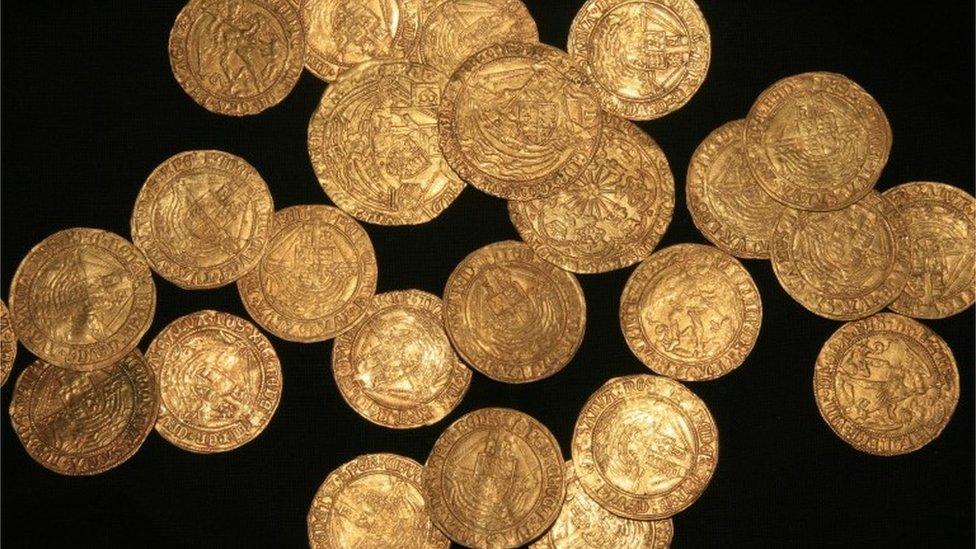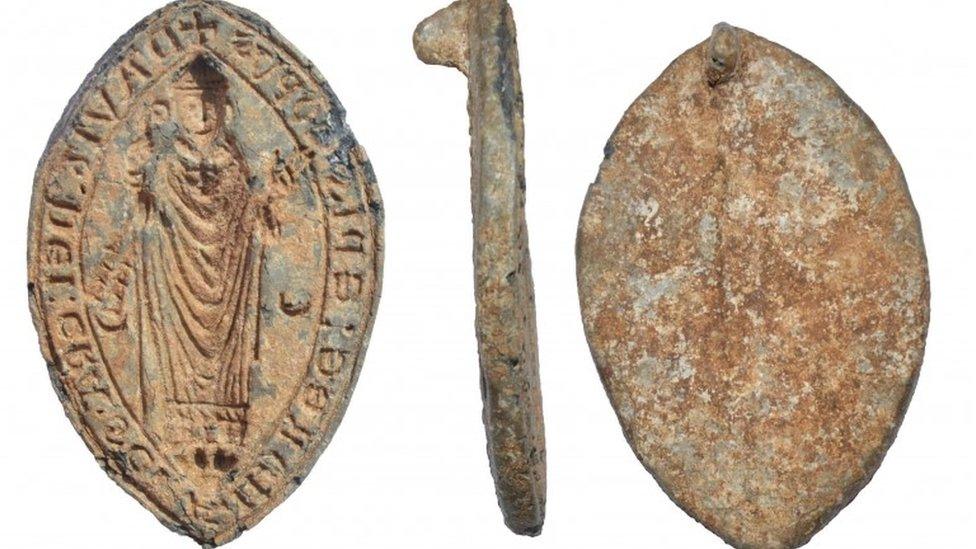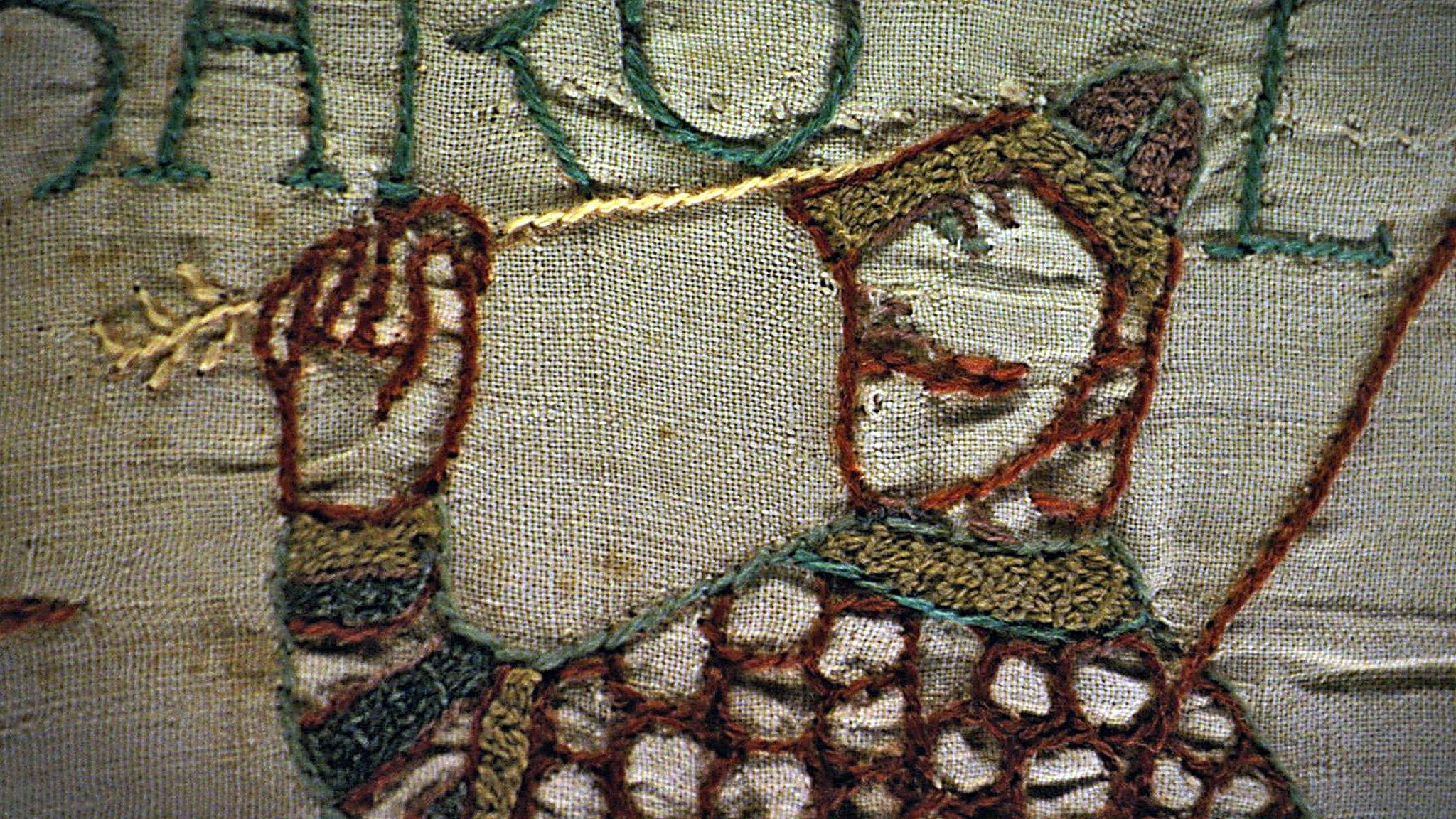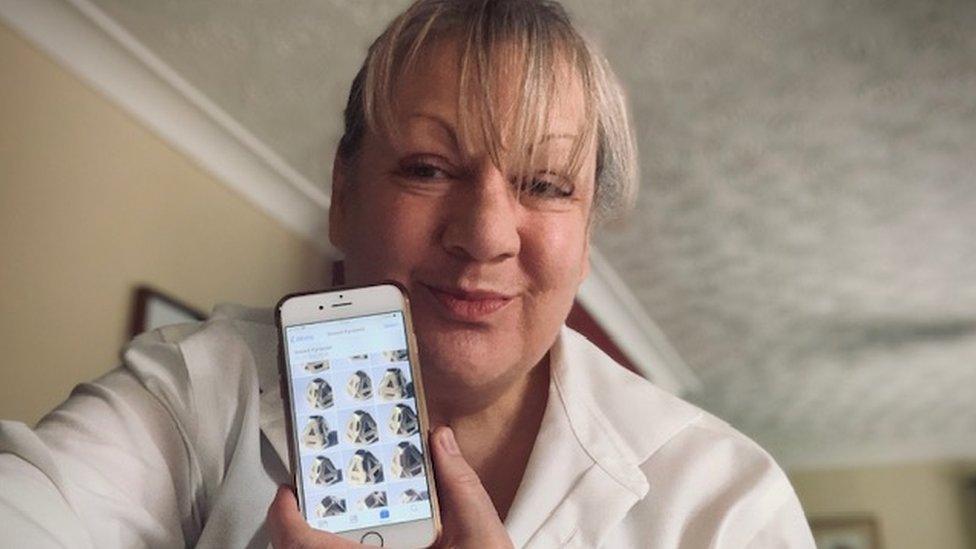Lockdown finds: Gold coins among garden finds
- Published

The gold coins date back to the 15th and 16th centuries
Gold coins dating from the 15th and 16th century unearthed in a garden were among 6,251 historical finds registered during the first lockdown.
The 63 coins, possibly deposited around 1540, were found by a family while weeding at their New Forest home.
Other discoveries included 50 South African gold coins in Buckinghamshire and a medieval seal in Gloucestershire.
The British Museum's Portable Antiquities Scheme (PAS) said lockdown had led to some unexpected discoveries.
Ian Richardson, treasure registrar at the British Museum, said: "People during lockdown have been spending more time at home and maybe turning to pursuits that they hadn't engaged with so much before.
"They were out turning up the soil and all of a sudden these coins popped out of the ground miraculously. It is quite a shocking find for them and very interesting for us."
The New Forest coins, worth the equivalent of £14,000 in today's money, included four from Henry VIII's reign, featuring the initials of his wives Catherine of Aragon, Anne Boleyn and Jane Seymour.

A medieval seal matrix in the name of the 13th century Bishop of St Andrews is thought to be a forgery
John Naylor, of the Ashmolean Museum, said the coins may have been a "merchant's hoard" or hidden by a monastery or church during the Dissolution.
"We do know that some monasteries and some churches did try to hide their wealth, hoping that they would be able to keep it in the long term," he said.
A collection of 50 gold coins from apartheid-era South Africa was also discovered at a home in Milton Keynes.
The 1oz Krugerrand coins were minted in the 1970s, according to a PAS report.
Other finds include a copper-alloy Roman furniture fitting, from around AD 43-200, found in Old Basing, Hampshire.
A medieval seal matrix in the name of the 13th century Bishop of St Andrews was discovered in Dursley, Gloucestershire, although experts believe it was a forgery.
- Published19 August 2020

- Published26 October 2020

- Published24 June 2020
